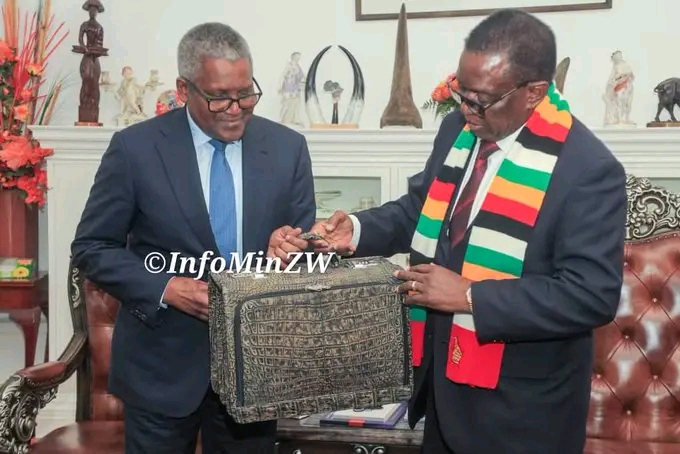Chinese Ambassador to Zimbabwe H.E Zhou Ding
By Dickson Bandera
China has reaffirmed its commitment to driving agricultural transformation and climate resilience in Zimbabwe and the wider Global South, backing two ambitious projects that place soil and water at the centre of sustainable development.
Through the Food and Agriculture Organization of the United Nations (FAO)–China South–South Cooperation Framework, Beijing is bringing its technical expertise and funding muscle to Zimbabwe’s National Water Roadmap towards 2030 Sustainable Development Goals and the Capacity Development on Sustainable Soil Management in the Global South.
Speaking at the official launch in Harare, Chinese Ambassador to Zimbabwe H.E Zhou Ding underscored China’s decades-long partnership with Zimbabwe, which this year marks 45 years of diplomatic ties. “Soil and water are not just resources—they are the lifeblood of agriculture. China stands ready to continue sharing its experience, technology, and resources to help Zimbabwe and its neighbours achieve food security and sustainable growth,” Ambassador Zhou said.
China’s contribution includes practical support on the ground: since 2002, it has sent six agricultural expert teams to Zimbabwe, drilled over 1,300 boreholes countrywide, provided emergency food assistance to millions, and recently rolled out the Juncao Technology Project to promote climate-smart fodder and mushroom cultivation.
Next year, Beijing will expand its footprint through new China-aid irrigation upgrades designed to boost smallholder productivity and water efficiency.
Zimbabwe’s National Water Roadmap will prioritise improved water governance and expand micro-irrigation to over 35,000 rural communities and 10,000 institutions, a key pillar of the country’s Rural Development 8.0 strategy.
The complementary Sustainable Soil Management Project will modernise soil mapping, fertility management, and training under the revamped National Agricultural Soil Research and Education Centre (NASREC).
FAO Subregional Coordinator for Southern Africa, Dr. Patrice Talla, hailed China’s continued solidarity with the Global South as transformative.
“China has demonstrated that with limited arable land, technology and policy can feed billions. This partnership is about adapting that success story to Africa’s unique contexts,” Dr. Talla said.
The FAO–China collaboration will also support peer countries such as Mozambique, Botswana, Madagascar, and Eswatini, positioning Zimbabwe as a regional hub for sustainable soil and water governance.
With Zimbabwe aiming for an upper middle-income economy by 2030, the China-backed initiatives are expected to directly advance targets under the National Development Strategy 1 (NDS1) and multiple Sustainable Development Goals, including Zero Hunger (SDG 2) and Climate Action (SDG 13).
Ambassador Zhou reiterated China’s long-term commitment, “We will continue to walk side by side with Zimbabwe—sharing knowledge, building infrastructure, enhancing trade and technology transfer. Together, we can secure a greener, more resilient future for our peoples.”


